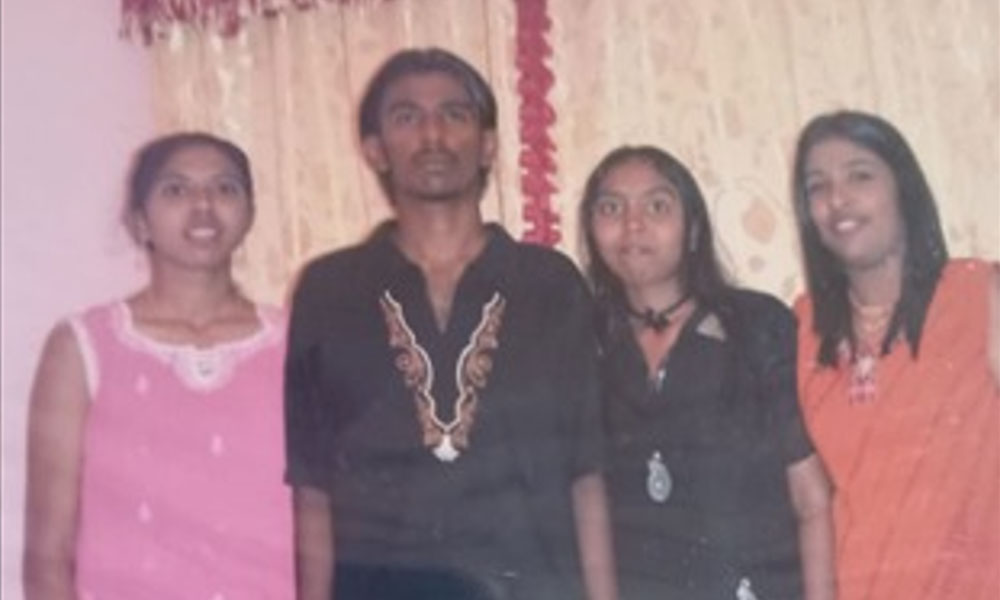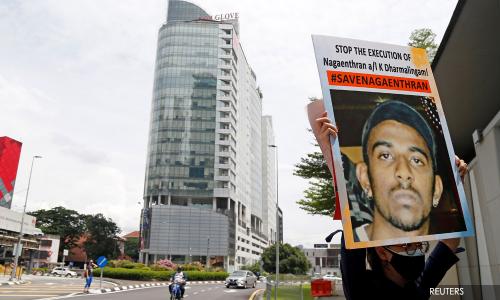ADUN SPEAKS | Singapore’s primitive laws against drug trafficking
ADUN SPEAKS | I really find it difficult to understand why Singapore has to overprove to the world that it has to exact maximum punishment on those involved in drug trafficking.
D Nagaenthran’s appeal to commute the death penalty was turned down by Singapore’s Court of Appeal.
the 34-year-old Malaysian was arrested and sentenced to death more than a decade ago for trafficking 4.27 grammes of heroin.
His lawyers appealed against the death penalty not because he was not guilty but because of his mental impairment.
In other words, he has an IQ of 69, a mental state of a child.
His lawyers argued that since Nagaenthran was not fully aware of the consequences of his actions given his mental impairment, his death sentence should be commuted.
Nagaenthran has fully exhausted his appeal and the only thing that he can do is to seek pardon from Singapore’s president.
The odds of getting a reprieve from the death penalty seem minimal.
All he and his family can hope for is for a miracle to happen.
‘Tiny dot’ on world map
It is a strange thing that a small country like Singapore, once described as a “tiny dot” on the world map wants to punch above its weight.
Given its smallness, Singapore from the time of its independence to the present day wants to prove to the world that it is a tough nation to be taken seriously.
This toughness is measured in terms of having draconian laws against crime in general and drug trafficking in particular.
Regrettably, this toughness is translated into arresting the lower rung drug pushers instead of the drug syndicates’ bosses.
This no-nonsense approach has earned Singapore a good reputation, especially among countries that are fighting the menace of drug trafficking.
Between 2016 to 2019, Singapore had executed 25 persons mainly for trafficking in dangerous drugs.
But unfortunately, the death penalty for drug trafficking has not reduced the illicit flow of dangerous drugs in the country.
The drug business is an international one, run and managed by powerful syndicates, with tentacles all over the world.
The imposition of the death penalty in Singapore has invariably ended up targeting the third and fourth level drug mules, but the leaders of the powerful syndicates, located in unknown places, are beyond the reach of the law of the nation-states.
Those arrested and sentenced to death in Singapore are those coming from lower socioeconomic backgrounds.
They are not professional drug traffickers but those who want to make quick money due to the financial circumstances of their families.

Victim of drug syndicates
This is precisely the case of Nagaenthran, a person from a poor family in Johor, a victim of the drug syndicates.
By transporting and delivering a small number of drugs, he was promised a sum that would mitigate the financial situation of his family.
The question of Nagaeethran being not guilty does not arise. But was he in a sound mind when he agreed to engage in drug trafficking?
His lawyers argued that Nagaenthran indeed engaged in drug trafficking, but since he was mentally impaired with a low IQ, he should be spared the death penalty.
However, the prosecutor was unmoved by the pleas of his lawyers to hold the opinion that Nagaenthran was fully aware of the consequences of his actions and therefore, responsible.
Nagaenthran's appeal was dismissed by the court.
The Court of Appeal was not even prepared to allow for an independent psychiatric assessment of Nagaenthran.
He would be executed in a matter of days if Singapore’s president does not intervene.
However, understanding the power structures of Singapore, a presidential pardon is unlikely.
In the execution of the 25 persons mainly for drug trafficking, Singapore proved itself that its laws must be taken seriously.
I am sure those who were executed were not from the upper echelons of the drug syndicates. They were invariably members of the working class.
Unfortunately, Singapore can overprove to the world that it means business when it comes to drug trafficking.
But the draconian penalty against drug trafficking might have netted the members of the lower socioeconomic background, but the real kingpins behind the drug trafficking syndicate are untouched.
It is terrible shame of the justice system in Singapore that it only ends up punishing the poor subalterns of the society.
As far as drug syndicates are concerned, the death of Nagaenthran will be a mere number in the long and growing list of mules used to do their dirty work.
For the drug syndicates, it is nothing for them to dispense with the lives of Nagaenthran and many others after him.
There will be other Nagaenthrans to come along to take his place.
The adverse publicity on the death penalty in general and Nagaenthran, in particular, is not going to slow down drug trafficking in Singapore.
It is strange that Singapore prides itself as a modern nation-state but is weighted down by laws that are primitive and outdated.
P RAMASAMY is Perai assemblyperson and Penang deputy chief minister II.
The views expressed here are those of the author/contributor and do not necessarily represent the views of Malaysiakini.
RM12.50 / month
- Unlimited access to award-winning journalism
- Comment and share your opinions on all our articles
- Gift interesting stories to your friends
- Tax deductable
